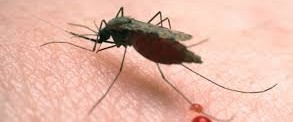The SENUPH II project represents a network of three universities in southern Ethiopia as well as the University of Bergen. The focus is on public health. Based on history of 20-year collaboration, we aim to strengthen the existing collaboration so to enhance efforts to improve capacity building, research, building independent senior researchers, and collaborate with the Ministry of Health with the relevant health information to improve the health of peoples in southern Ethiopia.
Project’s particular importance
Even if there has been a substantial economic growth in Ethiopia, the country remains among the 20 poorest countries. The population is in a transition with declining fertility, increasing life expectancy, heavy burdens of poverty-related diseases and increasing load of non-communicable diseases. Thus, the country needs evidence-based healthcare to improve health policy and improve the health of the population.
This project focuses on health challenges and priority setting. We believe universities in southern Ethiopia, can produce relevant information for policymakers to enhance public health work. By focusing on infectious diseases, malnutrition and the emerging burden of non-communicable diseases, we aim to build capacity in higher education both at universities and at the Ministry of health.
By the end of the project and through building strong research groups, we expect to have nine independent researchers capable of research leadership, supervising future PhD students, mentoring post docs, that further can develop their institutions when this project ends. Furthermore, we expect to have strengthened two PhD programs that would be sustainable in an Ethiopian context.
Building on a previous joint PhD degree programme between Hawassa University and the University of Bergen, and strengthening research at Dilla and Arba Minch University, we plan through PhD and post doc research, linked to training at the master’s level, strengthen the ownership, capability, and sustainability of the universities and of the Ministry of health to carry out evidence-based healthcare. The teaching, research, and implementation work will be interdisciplinary and integrated and involve disciplines such as epidemiology, medicine, priority setting and health economics, household economy, essential laboratory disciplines for emerging and existing epidemics.
Project goals
Through this six-year project, we aim to strengthen the institutional capacity for teaching, supervision and research by developing teams of researchers consisting of both senior (post docs) and junior researchers (PhD students and PhD holders) and thereby obtaining a critical mass needed for future sustainability of the institution. This will also focus on enhancing leadership capability of researchers so that they become independent researchers.
We shall strengthen research groups on thematic areas such as communicable diseases (malaria, emerging and re-emerging infections, and tuberculosis), nutrition, and priority setting on non-communicable diseases and health economics.
Relevant SDGs in the project
This project will deal with several of the sustainable development goals. The main goal is good health and well-being (SDG3). However, a large proportion of the efforts will be to reduce hunger in an area where chronic malnutrition is highly prevalent (SDG2). Our program will be based on quality teaching (DG4), and gender equality (SDG5).
Partner institutions
In Ethiopia, Hawassa University, Arba Minch University, and Dilla University, and the University of Bergen
